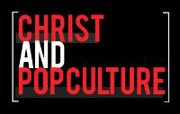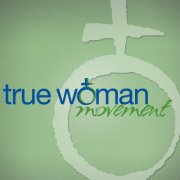A defining aspect of our culture here in the States is the multitude of choices available to us. Our consumer-based society has a marketplace of goods to suit the most particular of fancies. It has become so natural for us to have varying choices for every decision we face that frustration and entitlement abound in the absence of it.
Whereas we view choice as the epitome of freedom, Augustine (354–430 AD) perceived it as a signpost for the state of the soul. He believed—from personal experience—that those who are bound to freedom of choice are exactly that: bound . . . bound to their whims, chained to their indulgences. Augustine knew firsthand that a heart rooted firmly in the richness of God would not be plagued with choices, for all other choices save one would be worthwhile, that choice being the Lord Himself.
I read of Augustine’s views in John Piper’s The Legacy of Sovereign Joy: God’s Triumphant Grace in the Lives of Augustine, Luther, and Calvin, which was one of my selections for Dewey’s 24-Hour Read-a-Thon. Piper explains:
For Augustine, freedom is to be so much in love with God and his ways that the very experience of choice is transcended. . . . The self-conscious experience of having to contemplate choices was a sign not of freedom of the will, but the disintegration of the will.
The ideal of freedom is to be so spiritually discerning of God’s beauty, and to be so in love with God that one never stands with equilibrium between God and an alternate choice.
It is true: In the areas of choice where God has already conquered my waffling heart, the decision is uncontested. In such places, my heart is set to honor God, no matter the cost. This resolve automatically removes all options that fail to meet the standard, making the path beneath my feet both narrow and wide all at once.
Often I have lamented here of my own entanglement with indulgences and the wrestling match that ensues when my desires rage for attention through the options set before me. And I also know that when I am satisfied with the Lord, other soothers and vices hold no interest, not because I am so holy or mature or religious, but because I have found the ultimate satisfaction in knowing Jesus Christ; I know nothing else compares.
It is in the areas of choice where my sinful nature is running wild that my decisions are unruly at best and destructive at worst. In such places, my heart is flitting about, unanchored, untethered, unbound. The choices before me are blinding and confusing. I feel like a three-year-old at the toy store, who is overwhelmed by the brightly colored trinkets and most likely to make a short-sighted, shallow decision.
When sin beckons me to tip the scales in its favor, it is only the beauty and all-satisfying richness of Christ that will keep me from my sinful bent.
Augustine’s perspective of choice being a noose around the neck is much different from what is common today. But his insight remains firm. It cuts to the soul, raising a standard for all who long to find themselves in Christ alone.
And if true, lasting satisfaction is found in Christ, why would I settle for anything less?
Good question.












